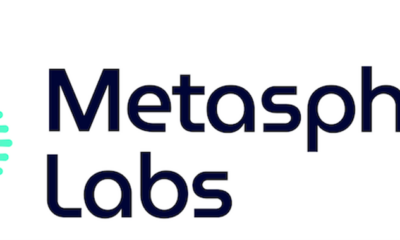Ethereum
Lido Takes First Step to Decentralize Ethereum Node Operator Amid SEC Allegations

Monday saw the launch of Lido’s community staking module on the Holesky testnet, which aims to allow new entities, including solo stakers, to become node operators without needing permission from its DAO.
Posted on July 2, 2024 at 6:55 p.m. EST.
As it faces allegations from the U.S. Securities and Exchange Commission, liquid staking leader Lido is preparing to become more decentralized by taking a step toward integrating a more diverse set of Ethereum node operators, such as solo stakers, the “gold standard” of staking, according to the Ethereum Foundation.
On Monday, a Lido initiative called Community Staking Module, which is expected to allow permissionless entry for node operators, was activated on the Holesky testnet, according to a press release. governance position in the Lido forums by Dmitry Gusakov, the technical lead for Lido’s community staking product.
The move comes days after the SEC implied in a lawsuit against Ethereum software provider Consensys that Lido’s liquid staking token, stETH, was an unregistered security. Staked ETH, aka stETH, represents the principal amount of a person’s staked ETH and their staking rewards for helping secure the Ethereum blockchain network.
Lido’s stETH has a market cap of $33 billion, making the liquid staking provider the top DeFi protocol by total value locked. According to a Dune Analytics Dashboard According to crypto analyst Hildobby, Lido holds a 29% share of the total 33.3 million ETH staked.
The advent of Lido’s community staking module marks a shift from the protocol that first introduced liquid staking in 2020, as Lido on Ethereum has had a curated and permissioned validator set since its inception, where those who wish to act as a node operator for Lido must be vetted by the Lido DAO.
Allowed and restricted from the beginning
Unlike its competitor Rocket Pool, before a node operator can conduct validator operations for Lido, governance must vote on whether or not a potential address should be included in Lido’s active pool of node operators. At press time, Lido has 39 node operatorswhich includes companies such as P2P.org, Chorus One and Consensys.
The permissionless entry-centric initiative allows “any node operator – and especially community stakers, from solo stakers to groups of friends to hobbyists – to operate validators by providing an ETH-based collateral (security guarantee),” according to its Documentation.
The new community module is expected to make solo staking more accessible through the inclusion of several features such as low obligation for node operators as well as smoothed rewards from Ethereum’s execution layer and maximum extractable value.
Lido is becoming less centralized by making its set of node operators permissionless. Over the lifecycle of a crypto project, a protocol will typically start with heavy elements of centralization, from core developers controlling the direction of the project, sometimes in the form of fundraising, to the delay of a protocol’s token generation event that aims to introduce governance mechanisms for community members.
Eventually, a protocol’s founders and core members would introduce decentralization initiatives, such as implementing on-chain voting processes or enabling permissionless node operation, as in the case of Lido.
SEC Focuses on Consensys and Lido
While, like most DeFi projects, Lido has had a roadmap toward decentralization for some time, the move comes days after the SEC charged Consensys with offering and selling unregistered securities, namely Lido’s Liquid staking tokens and Rocket Pool, through Metamask, a crypto wallet where people can stake and trade cryptocurrencies.
Consensys, which is also a node operator for Lido, “offered and sold tens of thousands of unregistered securities on behalf of liquid staking program providers Lido and Rocket Pool, which created and issued liquid staking tokens (referred to as stETH and rETH) in exchange for staked assets,” according to the SEC’s press release. States.
Learn more: Could the SEC Have a Case Against Liquid Staking Protocols?
The complaint characterizes Lido and Rocket Pool as issuers of unregistered securities, alleging that their staking programs “are each offered and sold as investment contracts and, therefore, securities.”
Under the so-called Howey test, which since a 1946 court case has been the legal measure for determining whether an investment is a securities offering, the agency said these liquid staking tokens meet the criteria.
In its press release, it stated that LST purchasers are “making an investment of ETH in a common enterprise with a reasonable expectation of profits from the management efforts of Lido and Rocket Pool, respectively.” However, neither Lido nor Rocket Pool have filed any registrations to offer these securities with the SEC.
The fourth prong of the Howey test being “the management efforts of others,” crypto projects have sought to be sufficiently decentralized that such a third party cannot easily be named.
When Unchained reached out to Lido’s founders and key members in May to inquire whether the SEC had taken action against the liquid staking provider or contacted them regarding stETH, Unchained did not receive a response. According to a snap poll conducted in August 2022, Eric Hill, who goes by @Rotorless on X, is Lido’s chief legal officer and general counsel. However, when Unchained reached out to Hill for comment, he stated that he no longer holds that position and was “not the right person to talk to.”
After the SEC lawsuit against Consensys, when Unchained highlighted the SEC’s claims that stETH is an unregistered security, Lido’s head of marketing Kasper Rasmussen said, “We’re on it,” but did not provide additional information.
LDO, Lido’s governance token, has declined 6.3% in the past 24 hours and 19.7% in the past 30 days to trade at $1.92, bringing its market cap to $1.7 billion, according to CoinGecko.
UPDATE (July 3, 2024, 3:08 p.m. ET): Added details on the timeline for Lido’s plan to make the process of becoming a node validator permissionless, as well as how Lido’s founders and key members responded to questions about regulatory issues when reached out to by Unchained in May.
Ethereum
Ethereum (ETH) Whales Are Getting Incredibly Bullish: Details

Cover image via www.freepik.com
Disclaimer: The opinions expressed by our editors are their own and do not represent the views of U.Today. The financial and market information provided on U.Today is intended for informational purposes only. U.Today is not responsible for any financial loss incurred while trading cryptocurrencies. Do your own research by contacting financial experts before making any investment decisions. We believe all content to be accurate as of the date of publication, but some offers mentioned may no longer be available.
Ethereum (ETH) Whales are making major moves in the cryptocurrency market, suggesting strong bullish sentiment despite short-term price volatility. According to crypto analyst Ali Martinez, these big investors have accumulated over 126,000 ETH in the last 48 hours, or about $440 million.
In a tweet, Ali wrote: “Ethereum whales have accumulated over 126,000 ETH in the last 48 hours, worth around $440 million.”
According to CryptoQuant CEO Ki-Young-JuWhales may be preparing for the next move in the market. Ju wrote in a tweet that “whales may be preparing for the next rally in altcoins.” He noted that the volume of limit buy orders for altcoins, excluding Bitcoin and Ethereum, is increasing, indicating that strong buy walls are being put in place.
Ethereum’s recent developments, including the recent launch of Ethereum spot ETFs in the US, appear to have increased its appeal among large holders, known as crypto whales. Ethereum recently celebrated nine years since its inception, and as the ETH network continues to evolve, it is likely to attract more institutional interest.
Related
According to data from Farside Investors, fund flows into U.S.-listed Ethereum spot exchange-traded funds turned net positive daily for the first time since their inception on July 31, primarily due to a decrease in outflows from the Grayscale Ethereum Trust.
Ethereum Price Drops Due to Market Crash
Bitcoin and Ethereum, along with the majority of other crypto assets, appear to be underperforming during Thursday’s trading session.
According to CoinMarketCap dataAt the time of writing, Bitcoin’s price was $64,034, down 2.77% from the previous day. Ethereum’s price is down 4.21% from $3,175, where it was 24 hours ago. Several cryptocurrencies were posting larger losses; Solana’s Dogwifhat was down 12% in the past 24 hours, and PEPE was down 7% in the same period.
According to CoinGlass, price followers have led to the liquidation of $225 million worth of derivatives contracts over the past day.
Ethereum
Ethereum (ETH) Price Hits $50,000? Target Updated by Analyst

Vladislav Sopov
Extreme skepticism from Ethereum (ETH) detractors has prompted a veteran researcher to double down on Ether
Read U.TODAY on
Google News
Ethereum (ETH) proponent and AI enthusiast Adriano Feria has presented an extremely optimistic Ether price prediction. After the reaction of skeptics, he reconsidered the target, increasing it by 100%. His views are aligned with those of major institutional players, according to recent data.
Ethereum (ETH) bullish hypothesis should get us there: researcher
Ethereum (ETH) could hit $50,000 early in the current cryptocurrency market cycle. At the same time, a “bullish scenario” could push the price of the second-largest cryptocurrency to six-digit values, Web3 and AI educator Adriano Feria told X.
In a tweet shared with his 14,000 followers, Feria stressed that he is confident in the promising prospects of Ethereum (ETH) despite the massive wave of hatred against Crypto X. The doubters will regret their skepticism, the researcher admits:
If you hold ETH today, you are truly part of the global elite, because the bullish scenario for ETH should take us to $100,000. You think this is a joke, but there are real financial institutions around the world that have set bullish targets that are close to this. And no, this is not a joke.
Three days ago, he “increased” the $28,000 per ETH prediction published by Eric Conner, a veteran of the Ethereum (ETH) ecosystem and co-author of EIP 1559.
These ultra-bullish statements come amid growing disbelief triggered by ETH’s weak short-term performance.
The second-largest cryptocurrency failed to take off following the launch of the Ether ETF in the United States. At press time, Ethereum (ETH) was trading at $3,311, down nearly 6% from the local peak set after the ETF launched on July 23.
Insane BTC and ETH Price Predictions Released Every Day
As previously reported by U.Today, in February, Feria noted the rapid increase in popularity of ETH staking based on on-chain data.
In recent days, more and more analysts are sharing incredibly high predictions for Bitcoin (BTC) and Ethereum (ETH), the two largest cryptocurrencies.
For example, US asset management heavyweight VanEck has suggested two scenarios for the price of BTC in 2050.
The most optimistic scenario sees BTC surpassing $52 million per coin, while the $2.9 million mark is considered a “baseline” scenario by VanEck.
About the Author
Vladislav Sopov
Blockchain analyst and writer with a scientific background. 6+ years in computer analysis, 3+ years in blockchain.
I have worked in independent analysis as well as in start-ups (Swap.online, Monoreto, Attic Lab etc.)
Ethereum
Lloyd’s of London-backed insurance policies can now be paid in crypto on Ethereum

Lloyd’s of London, the three-century-old insurance marketplace, is supporting digital asset protection policies curated on the Ethereum public blockchain that can be paid for natively, on-chain, using cryptocurrency, through Lloyd’s Coverholder Evertas and smart contract insurance provider Nayms.
Not so long ago, any kind of cryptocurrency insurance coverage Finding solutions was difficult. Aside from the efficiency benefits of paying for insurance policies in cryptocurrency and using blockchain to streamline the burdensome paperwork of intermediaries, a consortium of Lloyd’s of London syndicates backing cryptocurrency-native, on-chain insurance shows how far the industry has come in the last two years.
“We’re enabling people using public blockchain infrastructure to interact with traditional, highly regulated, fiat-backed institutions in a transparent way,” Evertas CEO J. Gdanski said in an interview. “Whether it’s paying in USDC or native cryptocurrency, or placing policies entirely on-chain with blockchain helping coordinate between a broker, the policyholder, and insurers, we believe this is a foundational infrastructure.”
Nayms, a digital marketplace where brokers and underwriters connect with crypto capital investment, is a play on Lloyd’s “names,” the collection of individuals and companies that underwrite risks in the historic insurance market.
“The native cryptocurrency expertise we bring to the underwriting process gives us a deep understanding of the risks we insure,” Nick Selby, the company’s head of European underwriting, said in an interview. “It means we’re very explicit about what we do and don’t cover, and we can pay insured claims faster than anyone else.”
Ethereum
10 Years of Crypto Innovations! Here’s How Buterin Sees the Future of Ethereum!

2h45 ▪ 3 min read ▪ by Eddy S.
At the EDCON2024 conference, Vitalik Buterin unveiled the future directions of Ethereum, with a focus on innovative application development and wallet security. He presented promising projects and innovative ideas to improve privacy and accessibility for cryptocurrency users.
Ethereum’s new innovations by Vitalik Buterin!
Vitalik Buterin delivered a key speech on the future of Ethereum in the next ten years. He stressed that the priority of the crypto blockchain will now be to develop applications. Some of the already successful applications include decentralized finance (DeFi), decentralized identities (DID) with the Ethereum Name Service (ENS), DAOs and NFTs.
Vitalik also highlighted several promising projects. These include the prediction market Polymarket, the social media aggregator Firefly, the wallet Daimo, and the voting tool Rarimo. These applications illustrate the diversity and potential of Ethereum-based technologies to transform various sectors of crypto.
Vitalik also proposed several innovative ideas to improve the security and accessibility of Ethereum wallets. One of his proposals is to encrypt the private key directly into the cell phone’s chip! Thus turning the phone into a secure crypto wallet. Another idea is to place part of the private key in a regulatory-compliant custodial institution, thus providing an additional layer of security.
Vitalik also mentioned the use of zero-knowledge (ZK) proof technology to link KYC information to the wallet. This approach would ensure the privacy of cryptocurrency users while meeting regulatory requirements.
Security and Privacy: Two Requirements for Cryptocurrency Users
These proposals aim to improve the security and privacy of cryptocurrency users while facilitating the adoption of the technology by a wider audience. By combining technological innovations with practical applications, Ethereum continues to position itself as a leader in the cryptocurrency and blockchain ecosystem.
Vitalik Buterin’s speech highlighted Ethereum’s many advancements and future prospects. With a focus on application development and innovative proposals for crypto wallet security, Ethereum is well-positioned to continue to grow and innovate in the years to come.
Optimize your Cointribune experience with our “Read to Earn” program! Earn points for each article read and access exclusive rewards. Sign up now and start earning benefits.
Click here to join “Read to Earn” and turn your passion for crypto into rewards!
Eddy S.
The world is changing and adaptation is the best weapon to survive in this undulating universe. Originally a crypto community manager, I am interested in everything that is closely or remotely related to blockchain and its derivatives. To share my experience and promote a field that fascinates me, there is nothing better than writing informative and relaxed articles.
DISCLAIMER
The views, thoughts and opinions expressed in this article are solely those of the author and should not be considered investment advice. Do your own research before making any investment decision.
-

 Videos9 months ago
Videos9 months agoCrypto News: Bitcoin, ETH Price, CPI Print, PYTH, WIF & MORE!!
-

 Videos9 months ago
Videos9 months agoCrypto News: Bitcoin Price, ETF, ETH, WIF, HNT & MORE!!
-

 DeFi9 months ago
DeFi9 months agoMetasphere Labs announces follow-up event regarding
-

 Videos9 months ago
Videos9 months agoSolana price potential?! Check out THIS update if you own SOL!!
-

 Videos8 months ago
Videos8 months agoWho Really CONTROLS THE MARKETS!! Her plans REVEALED!!
-

 DeFi6 months ago
DeFi6 months agoPump.Fun Overtakes Ethereum in Daily Revenue: A New Leader in DeFi
-

 News6 months ago
News6 months agoNew bill pushes Department of Veterans Affairs to examine how blockchain can improve its work
-

 DeFi6 months ago
DeFi6 months agoDegens Can Now Create Memecoins From Tweets
-

 News6 months ago
News6 months agoLawmakers, regulators to study impact of blockchain and cryptocurrency in Alabama • Alabama Reflector
-

 Bitcoin6 months ago
Bitcoin6 months ago1 Top Cryptocurrency That Could Surge Over 4,300%, According to This Wall Street Firm
-

 Ethereum8 months ago
Ethereum8 months agoComment deux frères auraient dérobé 25 millions de dollars lors d’un braquage d’Ethereum de 12 secondes • The Register
-

 Videos8 months ago
Videos8 months agoCryptocurrency News: BTC Rally, ETH, SOL, FTM, USDT Recover & MORE!
















